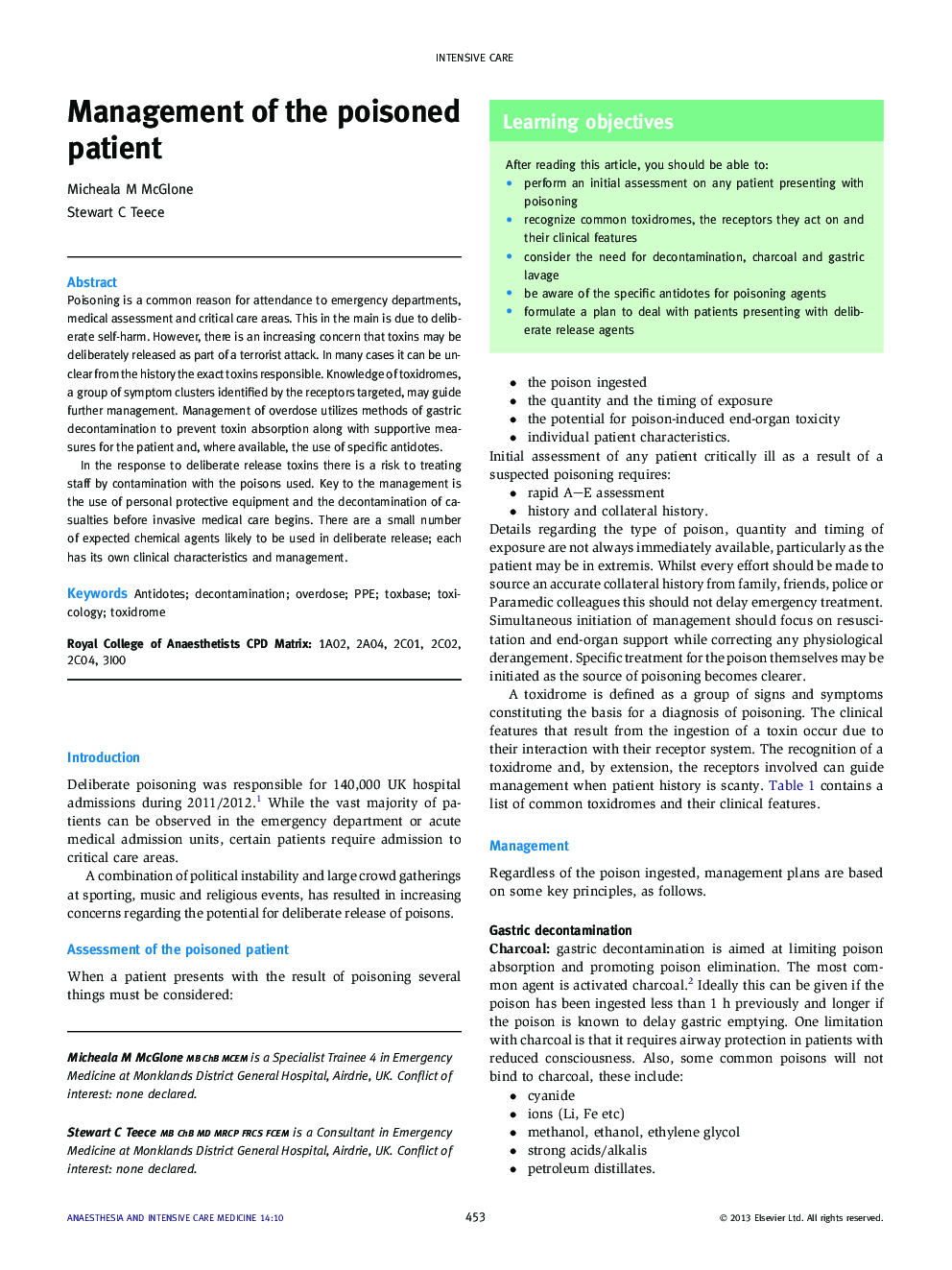| Article ID | Journal | Published Year | Pages | File Type |
|---|---|---|---|---|
| 2742497 | Anaesthesia & Intensive Care Medicine | 2013 | 4 Pages |
Poisoning is a common reason for attendance to emergency departments, medical assessment and critical care areas. This in the main is due to deliberate self-harm. However, there is an increasing concern that toxins may be deliberately released as part of a terrorist attack. In many cases it can be unclear from the history the exact toxins responsible. Knowledge of toxidromes, a group of symptom clusters identified by the receptors targeted, may guide further management. Management of overdose utilizes methods of gastric decontamination to prevent toxin absorption along with supportive measures for the patient and, where available, the use of specific antidotes.In the response to deliberate release toxins there is a risk to treating staff by contamination with the poisons used. Key to the management is the use of personal protective equipment and the decontamination of casualties before invasive medical care begins. There are a small number of expected chemical agents likely to be used in deliberate release; each has its own clinical characteristics and management.
